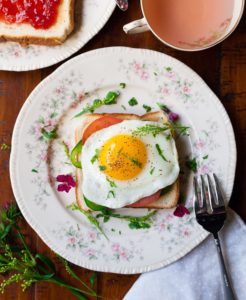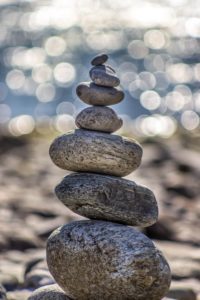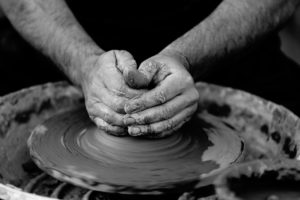by Jenny Rose | May 4, 2017 | Choice, Power
Last Friday I resigned from my medical transcription job. Shortly after emailing my letter of resignation to my supervisor, she called me, wanting to know why.
I told her the truth. I don’t feel as though my contribution matters. I don’t like the company culture of perfectionism and high stress. I don’t feel valued as an employee, and my skills and talents are worth more than I’m receiving.

Photo by rawpixel.com on Unsplash
We parted in a friendly manner. She assured me I was eligible for re-hire any time and wished me well. I wished her and the rest of the team well. Cyber handshakes and smiles all around.
I’m in the middle of selling a property back in Colorado. I currently have wonderful renters in the house. They’ve been honest, cooperative, open and have done every single thing they’ve said they would do. They’ve become friends. I’m faxing paperwork, including the lease with these tenants, to Colorado and working with my Colorado real estate agent long distance. The agent expressed surprise that our rental agreement didn’t contain language about punitive consequences if the tenants suddenly decided to break the lease and leave.
It never entered my head to limit my tenants’ choice to leave if they were unhappy. Obviously, at least one property professional feels this is inappropriate business practice, but why would I want to force two people whom I respect and like to stay in a situation that wasn’t working for them?
Answer: I wouldn’t want to, I didn’t want to and I don’t want to.
Last evening I had a long conversation with one of my sons, and among the things we talked about was the idea of noticing how things are within ourselves and the choices we make about our own unhappiness and discomfort.
This morning, as I fried bacon and sausage and worked in the kitchen, I was thinking about this week’s post, trying to come up with something I wanted to write about from my current experience, and suddenly all these interactions lined up in my head (Clunk! Clunk! Clunk!) and I thought, well, there it is. I want to write about quitting.
What do you think of when you think of quitting?

Photo by Milada Vigerova on Unsplash
I think of the word “should,” as in should quit smoking, should quit drinking, should quit eating so much sugar, should quit fill-in-the-blank. These are the kind of circumstances under which quitting is supported and validated, but the “should” is an instrument of shame, guilt and fear, as well as a thoroughly ineffective motivator.
I was taught being a quitter or a dropper outer is a desperately mortifying thing. Quitting is associated with betrayal, abandonment, failure, letting others down and weakness.
Quitting is often an act of aggression. It’s what we do when we’ve hung on by our fingernails until they’ve torn out, one by one, and we have to let go or die. It’s hitting bottom. It’s burnout, breakdown and nothing left to lose, often accompanied by scenes, meltdowns and an exchange of insults.
Quitting is selfish and irresponsible. Choosing to be happy is an embarrassing thing to admit. We’re told If everyone did what made them happy, everything would unravel. Nobody would work. Important things wouldn’t get done. The economy would collapse.
There are cultural consequences for quitting. The label “quitter” impairs our ability to get hired, find stable relationships or make financial choices. A quitter is unreliable and untrustworthy at best. Someone who quits their marriage, family or children is so despicable as to be unforgiveable in some cases.
The word quit, according to a quick search, means to leave a place, resign from a job or stop or discontinue an activity. In short, it’s a word that defines a choice. Interestingly, one of its origins is Middle English, in which it means “set free.”
Set free sounds a lot more positive than quitting, doesn’t it?
It occurs to me that the whole idea of quitting is rooted in power. To quit is to stop. How is it that the culture is so unfriendly and unsupportive, for the most part, of making a choice to stop? Why are we so consistently and pervasively discouraged from saying no, from quitting, from changing?
I’ve written before about the yes and the no. To be in our full power, both consent and dissent have to be available to us. We have to be able to make a real choice. The inability to freely choose points to a power-over situation, and it doesn’t matter if it’s work related, relationship related, addiction related or some internal limitation like fear. Something or someone is interfering with our power to freely choose if we can’t make a choice to quit.
Said a different way, the problem is not so much the addictive substance, the miserable job, the narcissistic family member or the abusive romantic relationship. The problem is we’ve been systematically amputated from our full power to choose.
Sadly, this is a consequence, at least in part, of our current educational system in the United States. It doesn’t work for a lot of kids. It didn’t work for me. It didn’t work for my kids. I told my sons the same thing I was taught when they complained. Education is important. Everyone has to go to school. It’s the law. We all have to do things we don’t want to. Being happy doesn’t matter.
Ugh. I wish I hadn’t believed that. I wish I hadn’t said it, and more than anything I wish I’d listened to their distress and taught them to respond to it appropriately by responding to it appropriately myself. At the time, all I had was what I’d been taught, and I’m absolutely certain my own mother taught me the only thing she knew as well.

Photo by Gemma Evans on Unsplash
The point is few of us learn how to respond to our discomfort or unhappiness, either by expressing it appropriately or taking action to help ourselves. Public education certainly doesn’t teach it. The way we work in this country doesn’t support it. Patriarchy in general doesn’t validate self-reflection, honest communication, or simply saying, “No more. This isn’t working for me. I’m stopping. I’m quitting.”
On the other hand, we’re great at demanding and commanding, as in “You should … You will … You must … You have to …” However, living in a cage of internalized and externalized shoulds is more power-over. When the shoulds have our power, we’re not free to choose. I know, because that’s how I’ve lived most of my life.
One of the hallmarks of power-over is its resistance to change. Change threatens the status quo. Traditional marriage vows are forever, no matter what. Many jobs reward length of service. We’re encouraged to grow up, settle down, get a stable life. Loyalty, dependability, reliability and predictability are all rooted in not changing.
But we do change. Our bodies change. Our needs and desires change. We learn new information. The things that captivate and delight us change. The best of us learn, grow, question, seek new experience, dance elegantly with challenge and tension, and develop a healthy relationship with being wrong. The best of us spend a lifetime making friends with our changing selves, investigating our motivations, our patterns, our behaviors and beliefs, our weaknesses and strengths, and doing battle with our fears and demons.
A relationship, job, priority or place may be a perfect fit at some point in our lives, and then be outgrown. A coping mechanism or response may work very well, even save our lives at one time, and cripple us at another. Life is always changing. The ability to flow with change, to welcome it and play with it, responding with free choice after free choice, defines a well-lived, powerful, elegant life
Quitting, like boredom, has a bad reputation. I suspect this is mostly due to a cultural smear campaign. My son is in his 20s, and as he shared parts of his experience with me, I realized we’ve arrived at the same place, he’s just 30 years ahead of his late-blooming mother. He’s reclaiming his power to respond to his own discomfort and distress and choose what to do, based on prior choices and how they worked out. He’s not waiting until he can no longer bear his unhappiness. He’s not quitting in a blaze of hand grenades and gunfire. He’s not self-destructing. He’s allowing himself to stop, to change, to leave. He’s setting himself free of what doesn’t work for him, and he’s doing it without guilt or shame or the need for outside validation.
Quitting is an art. I can be done with respect, gratitude and dignity. It can be a gift of love and authenticity to self and others. The right person for a job, place or activity is not someone who hates the job, place or activity. The right job, place or activity for us is not the one that makes us unhappy. Commitment, responsibility and keeping our word are all important things, but not unto death. Not unto madness and broken-down health. We are allowed to set ourselves free. We are allowed to change. We are allowed to learn. We are allowed to try and fail and move on.
I began this project of blogging with a letter of resignation. This week I sent another letter of resignation. In both cases, I hung on long after I knew I was miserable because I was afraid to make a change. I have more work to do in building trust with myself, but I’ve made a start.
I quit. My daily crime.
All content on this site ©2017
Jennifer Rose
except where otherwise noted
by Jenny Rose | Mar 30, 2017 | Emotional Intelligence, Feelings
In the last couple of years, a lid has been gradually slipping off a container in my mind labeled ‘BOREDOM,’ and I suddenly realize the contents of the can are now moving into all the cracks and folds of my memories and experience.
I don’t have much interest in boredom. I’m never bored and I’m greatly irritated by people who are. When I expressed boredom as I child I was either given something “productive” to do or told sometimes everyone has to do things they don’t want to do.
As a parent, when my kids expressed boredom, I gave them a long list of tasks or “productive” things they could do to help me. They usually declined, but they also learned quickly to stop saying they were bored.
I’ve often been told I’m boring.

Photo by Annie Spratt on Unsplash
There. That’s all I have to say about boredom.
Life was much more cut and dried before I became educated in emotional intelligence. Now I’m suspicious of cut and dried, especially if it has to do with feelings, patterns in my life or things that keep showing up. Boredom keeps showing up. People say they’re bored and I feel disgusted. People say they do self-destructive things because they’re bored and that excuse infuriates me. I take the boredom of others personally, as though I’m not entertaining or interesting enough to keep them engaged.
If I’m not interested in boredom, I ask myself, why does it make me so mad, and why does it keep catching my attention?
Why, indeed.
A couple of days ago I decided this week’s post would be about boredom, so I really started to think about it. I tossed around the concept of boredom with my partner. I thought about all the places it’s shown up in past relationships. I sat down and Googled boredom and looked at articles, quotes, memes, images and definitions.
I can’t tell you how often I’ve come to the page, either to write or research about something out there — a behavior or pattern I observe around me in other people — and discovered it’s not out there at all, at least not exclusively. It’s in here.
Remember what I said a minute ago? “I’m never bored.”
I’m suddenly realizing that’s not true. In fact, I suspect I’ve been chronically bored my whole life. The feeling of boredom, along with so many other feelings, simply got denied. It wasn’t until I started living more authentically here in Maine and stopped being bored that I could begin to see the colossal depths of my previous boredom.
Naturally, I’ve felt enraged when others express feeling bored while I can’t.
But why can’t I express it? What’s so shameful about boredom?
Oh, baby.

Photo by Jason Rosewell on Unsplash
First of all, being bored means you’re not working hard enough. You’re not being productive. You’re wasting time. You’re useless! You’re lazy! You’re a quitter! You’re irresponsible! You’re letting others down! You’re not pulling your weight! You’re a burden! You’re a failure! (This eventually trails away into a wild-eyed, gibbering mental shriek.)
When all the arm-waving drooling hysteria stops and I can think rationally again, what I’m left with is BUSY=GOOD and BOREDOM=BAD. This has the look and feel of first-grade logic to me, and I’m skeptical. I’ve spent a lot of my life staying busy in order to please other people and a lot of that busy was dead boring. School, for example. Busy and bored are not opposites. Busy without purpose is a recipe for compulsivity. On the other hand, the condition of being undisturbed and private with a book, paper and writing or coloring pens or even just a window and a cat with nothing in particular to do is a real pleasure.

Photo by Danny Postma on Unsplash
Somehow, somewhere along the way, boredom became the enemy in our culture. It’s a whine, a complaint, a danger and a discomfort to be avoided. It’s a weakness, even a sin (if you think in such terms). Boredom is a condition that must be fixed. Bored children get into trouble. Bored adults are not productive. Boredom is an excuse to use and abuse substance. People eat out of boredom. People have affairs out of boredom. Boredom, in fact, is to blame for a lot of undesirable behavior and choices.
Really? I don’t accept this. I’ve learned feelings — all feelings — can be thought of as value-equal data. We’re human. We have feelings. Some are more uncomfortable than others, but isn’t that largely a product of the thoughts and judgements we attach to them? Feeling a feeling doesn’t mean we have to act it out in ways to hurt others or ourselves. If we make destructive choices, our feelings are not the problem. What we do with our feelings is the problem.
It follows then, if I’m bored and I can call the feeling by name and recognize it, there’s information there for me. What is my boredom telling me? Here are some things I associate with my own boredom:
- I’m not interested.
- I’m not engaged.
- I’m not authentic.
- I don’t feel a connection.
- I can’t make a contribution.
- It’s too easy; I know how to do this; I can do more.
- I don’t understand.
- I’m overstimulated.
- I’m exhausted or ill.
- I’m overwhelmed with some other painful feeling, like fear, rage or grief, I’m refusing to deal with.
- I have a boundary problem; I’m taking on something belonging to someone else.
- I’ve been here and done this — not doing it again!
- My needs are not being met.
- I feel disempowered.
- I’m not in the right place.
- I feel limited.
- I can’t be curious or creative.
- I’m not safe.
This entire list is a map informing me where I’ve been, where I am and where I might go next. The feeling of boredom is the ground I stand on to read the map. My boredom doesn’t need to be fixed. There’s nothing shameful about it. On the contrary, it holds essential information and experience for me. It defines choices and supports power. Busy can’t create this essential space and quiet, but boredom can.
So much for not expressing boredom because it’s bad and busy is good. What else stood in my way all these years?
False Gods.
You see, I’m female. (By which I mean uterus, ovaries and menses.) Good girls, nice girls aren’t bored — ever — by males, including but not limited to male teachers, male family members, male romantic/sexual partners, male classmates and colleagues, and male bosses.
Now, before anyone climbs up on their high horse, understand I don’t hate men. Not at all. I’ve historically gotten along better with men than women, in fact. Also, I know things are different now than they were in the 60s and 70s when I was being socialized — sort of. There’s a lot more awareness and discussion of feminism and sexual politics.
However, a big part of my training had to do with “respect,” (also loyalty, responsibility and duty) and just about the only person not included in those I was taught to “respect” was myself. Respect was demonstrated by things like being silent while the men spoke, obedience, and being properly grateful for and attentive to mansplaining . Respect meant adapting, adjusting, and limiting myself so as not to challenge, threaten or compete with men. My role was to learn to “act like a lady” and be compliant, sweet and attractive.
You might not have noticed, but that training wasn’t notably successful.
Boredom and respect are not a happy team, so of course I kicked boredom to the curb. Respect meant love, validation, tribe, straight A’s, husband, children, a good job and a normal life. Boredom with addiction, violence, abuse, rigid thinking, inability to grow, absent creativity and curiosity, uninspired sex, toddler-level communication skills, power and control games, mind fuckery, omnipresent TV, unending housework and financial grind was absolutely out of the question.
Until now.
As for other people calling me boring, we’ve already covered that in a previous post. It’s a projection. My feeling of boredom is not about others and their boredom is not about me. I’ve been a lot of things in my life, but boring isn’t one of them.
That empty can in my mind labeled ‘BOREDOM’ was filled with something I want and need. Who knew? Going forward, I’m reclaiming my boredom. I’m welcoming it like the wise old friend it is, naming it, honoring it, embracing it, standing hip-deep in it and reading the map of my life to chart a course for what I’d like to do next.
And I will never, ever again try to fix, discourage, stifle, diminish or deny someone else’s boredom. I will instead congratulate them for feeling such a vital, vibrant feeling and ask them my favorite question:
“What would you like to do now?”

Photo by Joshua Rawson-Harris on Unsplash
All content on this site ©2017
Jennifer Rose
except where otherwise noted
by Jenny Rose | Feb 23, 2017 | A Flourishing Woman, Body, Food
I recently read a blog post about vegan bullying.
Yep. You read that right. Vegan bullying is a thing.

Photo by Joseph Gonzalez on Unsplash
It’s time for me to write about food.
I grew up in the 60s and 70s in a middle-class family with the standard education about the food pyramid, Food Commandments from the ADA, and a mother who was very concerned and conscientious about feeding her children and animals in the best possible way. Remember Adele Davis?
In my adult life, I was never a vegan or even a vegetarian, but I did eat mostly fruit, grain and vegetables. I bought organic whenever possible. I took supplements. I baked my own bread and desserts, made my own granola, and cooked gallons of stews, soups, chili and hot cereal over the years in my crock pot for my family.
Thanks to my mom’s good sense, my lack of a sweet tooth, and my income level, soda, fast food, candy, donuts and other mass produced sweets have never been a large part of my food intake.
All my life, I’ve sincerely believed I’ve had a healthy, well balanced diet. I avoided white sugar, high-fat and junk food. I made smoothies with low-fat unsweetened yogurt. I grew my own vegetables and herbs. I’ve never been overweight. In fact, I’ve had trouble keeping weight on.
I have a family and/or personal history of rheumatoid arthritis; inflammatory bowel disease; fibromyalgia; constipation; poor circulation; restless leg syndrome; migraines; gout; chronic pain; chronic fatigue; muscle spasm; insomnia; depression; anxiety; asthma; skin and sinus problems; food, environmental and drug allergies; and hypothyroidism.
It’s interesting to note how much of this list has to do with inflammation.
The list is kind of daunting written out like that, but members of my family rarely go to the doctor or take any kind of medication. None of us are overweight. Mom and I don’t drink alcohol or smoke. A lot of the above diagnoses are nebulous and chronic rather than acute. We take vitamins, exercise, try to eat well and control our stress, and do our best with the constant presence of chronic pain and discomfort. Conventional medicine can’t do much for most of this list except prescribe pain meds, anti-depressants, anti-inflammatories, antihistamines and anti-anxiolytics.

Photo by freestocks.org on Unsplash
Stepping back and considering our current social context in America, we have millions of people suffering from obesity, diabetes, heart disease and a dozen addictions, not the least of which is the current exploding opioid dependence. Millions and millions of people are suffering with increasing anxiety and other mental health challenges, exacerbated by the current political and social climate. Weight loss programs, supplements, books and weight gurus make billions of dollars a year. We’re obsessed with food and our relationship to it.
Food production is complicated and often unethical, to say the least. Monocropping practices by Big Agriculture annihilate the land, destroying the delicate, complex web of plants, soil organisms, animals and insects. We’re exposed to artificial fertilizers, insecticides and other poisons, whether we use them or not.
Commercial animal food production practices have frequently been horrifically inhuman and unhealthy, both for the animals and for consumers.
Healthcare, to put it kindly, is in disarray. As a medical transcriptionist, I routinely transcribe medication lists that contain twelve or more prescription drugs. Exponential pharmaceutical costs are in the headlines. I myself have insurance, for the moment, through Obamacare, but it’s useless. The only insurance I can afford has a $5,000 deductible. I couldn’t deal with a $500 deductible. I never see a doctor unless it’s a dire emergency, and then I always have to fill out indigent care paperwork to get a sliding scale fee.
Adding to the confusion is the ever-present influence of money. Advertising. Food stamps. Fast food. Dating. Meeting friends for a drink or at the coffee shop. We struggle to feed our families. We debate about vending machines in schools and school lunches. We deal with food-borne illnesses. We have no money and live on beer and ramen noodles, or oatmeal, or rice and beans. We know from advertising the right food can make us beautiful, make us strong, cure our ills, provide us with happy relationships, better hair, younger and more attractive bodies, a perfect date. We should eat beef. We should eat gluten free. We should eat organic. We should eat a pizza. We should eat vegetarian. We should drink milk. We know how to eat well, but we can’t afford to. We know how to eat well, but the rest of our family won’t cooperate. We know how to eat well, but we don’t have time.
Yet all life must eat. A living body is a complex system of energy, organs, elements and chemistry, and we know a lot about how the complex system of the human body works. If we don’t feed our body well, it gets sick.
We all think we know what it means to eat well, based on learned information, our experience within our own bodies, our observations of others, and in some cases our spiritual and political beliefs. Of course, it’s hard to think clearly when in the grip of an addiction to sugar and carbs (this includes alcohol), but that counts only if we acknowledge our addiction and its power to drive our behavior, right?
We all know what a good diet is. Everyone knows. It’s merely a question of self-discipline.
If only it was that simple.
In fact, everyone doesn’t necessarily know what a good diet is, for themselves or anyone else. There’s a lot of confusion, a lot of disagreement, a lot of conflicting “science” and advice. There are a lot of social, financial and political agendas, a lot of manipulation and brainwashing, a lot of misleading and frankly false “information.”
Why is one of the most basic activities of life so complicated? Why is there so much conflicting “information?” Why are we so unhealthy? Why are we so dependent on Big Pharma? Why are people in their late 20s having heart attacks and strokes? Why is there an obesity epidemic? Why is diabetes on the rise?
When did we get to the point of vegan bullying, or any kind of food bullying, for that matter?
Finally, lest we Americans forget there are people outside America, how is it possible that famine still exists in the world when so much food is wasted and discarded every day? What social and political dynamics allow people to starve to death in Africa or anywhere else, while other populations suffer malnourishment and metabolic starvation encased in obesity?
Lastly, why is the topic of diet so inflammatory? Why do vegans and vegetarians bully meat eaters? Why is eating meat conflated with gun rights, hatred and cruelty? Why is it unacceptable to challenge our current belief systems around food?
Hard questions without simple answers. Hard questions guaranteed to outrage lot of people.
Why?
This topic to be continued here, here. and here.
Please see my Resources page for more information on food, diet, nutrition and health.

Photo by Jonathan Simcoe on Unsplash
All content on this site ©2017
Jennifer Rose
except where otherwise noted
by Jenny Rose | Oct 13, 2016 | Connection & Community, Emotional Intelligence
This week I’m turning my attention to reciprocity. Again, this subject is much bigger than one post, so I’m breaking it into smaller pieces, just as I did with boundaries. For me, reciprocity describes a specific aspect of a larger subject: Balance.

Photo by Deniz Altindas on Unsplash
Balance is, according to a quick internet search, “a condition in which different elements are equal or in the correct proportions.” I’m constantly running into articles, blogs, books, opinions and speakers who talk about balance. It’s an important concept these days: Balancing family and jobs, balancing creative life with paying-the-bills-life, balancing technology with face-to-face connection, balancing our diet (and our bathroom scales), balancing our exercise, balancing our time and our checkbooks. With so much discussion out there, I wonder why many of us are so remarkably bad at it.
I think finding balance requires two things. The first is clarity — the willingness to look honestly at our lives and our choices. The second is taking responsibility for the fact that we do make choices.
I don’t know a soul who finds either one of these easy, and I also don’t know anyone who always feels great about the balance in their lives, in spite of what they may say.
Note in the definition above the language “correct proportions.” What are the correct proportions? You tell me. Are you happy? Are you healthy? Do you find your life meaningful? Do you enjoy your home, your relationships, your work, a good night’s sleep? If the answer is no, and you want things to be different, I suggest you work with the idea of balance.
It so happens I came across a great exercise for this years ago in a book called Home Sanctuary by Nicole Marcelis. I was just out of an abusive marriage and this book became an important part of reclaiming myself, my life and my home. In it, there’s a chapter on balance.

Photo by Toa Heftiba on Unsplash
The exercise asks you to make a pie chart and consider each piece of your life, calculating how much of the pie that piece takes up. Yes, you include sleep. You can make a pie chart for a day, a week, a month, or any increment of time you choose. Then, if you like, you can take each piece of that first pie chart and make another pie chart. If one of your pieces is parenting, for example, you might break parenting down into playtime, laundry time, cooking and food time, taking walks, reading aloud, visiting doctors, etc.
This exercise has absolutely no value (except to let you play with big pieces of paper and crayons) if you’re not willing to do it honestly. I, for example, am a solitaire junkie. I can play solitaire on this laptop for hours. Literally. Whenever I’m upset, or bored, or trying to regulate my feelings, I play solitaire. I feel like it soothes my anxiety when all the cards fall into neat little piles. I tell myself (and others) I’m planning what to write, or making a grocery list or writing an email, but that’s just bullshit. I’m playing solitaire and I’m feeling numb.

Photo by Jack Hamilton on Unsplash
A game or two of solitaire is not a problem. I don’t feel ashamed. An hour or two is getting out of control. Three or four hours and I’m hiding it from my family. I do feel ashamed. I have a partner, a blog, a job, and I’m writing a book. I live in a beautiful place and love to be outdoors. What’s up with sitting for hours playing solitaire? Something is wrong. I’m out of balance.
Don’t be a weasel with this. Watching TV with your mate does not count as quality relationship time. Watching TV with your kids is not great parenting time. Don’t lie to yourself about your relationships. Connection time has to be connecting for everyone involved. Family mealtime is nothing but a sham if someone spends it on their tech device or you’re glued to the TV. (No, news isn’t different than a sitcom!) That goes in your tech or TV slice of the pie. You have to come clean with yourself in order to make real changes.

Photo by Frank Okay on Unsplash
The thing about balance is it’s dynamic. What’s balance for this day won’t be the same for another day. As we stand upright we’re using countless muscles, nerves and our senses to maintain our balance and proprioception. Balance in our lives is the same way. It’s so easy to get off balance, but the good news is one can regain it nearly as quickly.
But only if you’re willing to be honest and claim your power to make choices.
This exercise is fascinating. What I realized was I didn’t really know what I was doing with my time. When you actually count the hours you spend doing whatever you’re doing, it can be a real eye opener. When you’re finished playing with paper and crayons and you look at your life through the lens of these pie charts, then it’s time for some hard questions. Does the way you choose to spend your time reflect your priorities? If you say your family is your priority and 80% of your pie chart is spent working (yes, commuting counts!), then you’re out of balance and you’re also not being honest. If you love the outdoors and want to be exercising more but you don’t because you’re couch locked in front of the TV, you’re out of balance. (Watching Planet Earth doesn’t count.)
The exercise is entirely flexible. It works with any resource, not just time. For example, you can do it with energy. Is there a connection or relationship in your life that demands all your energy? Are you getting as much as you’re giving? Are there other relationships that nurture and reward you that you’d rather be spending time in, but you can’t because you’ve got this vampire attached to your jugular vein?
How about money? Most of us have budgeted at one time or another. Tell me, friend, how much money do you spend on cigarettes? On drugs? On beer? On shoes? Cable TV? Can you buy food? Are your bills paid? Are you working at a job you hate because you need the money in order to support your habits — and are those habits making you happy and healthy?
We all have the same 24 hours in any given day, and we all choose what to do with those hours. This is not so much about making “right” or “wrong” choices as it is about realizing we are making choices. Nobody makes us watch four hours of TV every evening. If we’re longing to do creative work and we tell ourselves and the world we haven’t time for it, all we’re really saying is we lack the will to make it so. Why not be honest and say we’re too afraid to try, or we’ve given our power to someone else, and they say we can’t, or we’re an addict and our addiction has our power?

Photo by Quino Al on Unsplash
If you made a pie chart of the kind of life you want to have, with the perfect balance for your needs, how different would it be from what your life is now? What needs to happen to make changes? What can you excise from your present chart in order to free up time/energy/money/life?
Make no mistake, this exercise takes an enormous amount of courage, but the payoff is powerful. I revisit it now and then, just because I like to keep track of what I’m up to, and I want to know my choices are reflecting my priorities. I also note I’ve told people about this exercise, two of whom seemed to have no life outside of work and unhappy partners, and one who spent hours of screen time every day, both TV and computer, but talked about doing all kinds of fun things in the real world. I even loaned my book to one of them. None of them had time for clarity, change or choices.
Silly me.
Solitaire, anyone?
(This is the first post in a series of 4. See also Parts 2, 3, and 4.)
All content on this site ©2016
Jennifer Rose
except where otherwise noted
by Jenny Rose | Aug 25, 2016 | Power
Last month I posted about our power and ability to say both yes and no to others. This morning I’m thinking about another level of yes and no; that is the yes and no we say to life. At this level, the term ‘consent’ is useful. Consent means to “give permission for something to happen,” according to a 2-second search on Google.
Consent is a huge and complex topic and there’s a great deal of discussion about different aspects of it. For the purposes of this post, I’m using consent in the widest sense; the way in which we approach life.
Several interactions this week have made me think about the mysterious difference between people who consent to learn and grow and those who don’t. When I think about my observations, and people I’ve known, it’s clear to me the difference between these two kinds of people has nothing to do with age, sex, money, education, employment, intellect or family. It has nothing to do with the color of our skin or the god(s) we worship, or where on the planet we live, or what kind of horrors we might have endured.
I’m acquainted with a writer who sent me a piece in praise of stubbornness, a quality she admires (as do I) in herself and others because to her it means a determination to survive and do well, regardless of limitations, real and perceived. (Thank you, A!) We might mean the same thing by consent and stubbornness, or close to it. I see the ability to consent to learning and growth, over and over, no matter how many times we’re knocked down and cut off, as a kind of stubbornness — a refusal to give up, to close down, to conform to something that doesn’t work for us.
Without even trying I can identify seven people in my life, past and present, who don’t consent to the experience of life, the flow, the dance, the mystery and uncertainty, the synchronicity and the billions of invitations that arise for exploration, connection, understanding, growing and being.

Photo by Alex Iby on Unsplash
These folks are easy to spot. They resist. They argue with what is. They deny, distract, fall into various addictions. They don’t communicate effectively. They care about winning, being right and power-over. They have rigid stories and expectations. Everything that happens to them is a personal insult or a crisis. They’re victims. A good, deep question is a grave threat. To my eyes, they look miserably unhappy. They repeat the same patterns, over and over, dying a little more with each fruitless repetition. They do not consent. They refuse.

Photo by Cristian Newman on Unsplash
Every single one of the seven people I’m thinking of has had opportunities to learn, to grow, to change, to make different choices. They all had people in their lives who loved them and had information, tools and skills that might have enriched them. They all had people in their lives who valued them and wanted their contribution. They each had at least one person in their life who would have done anything to support them in learning and growing, and that person was me.
Most of those relationships are behind me now, because I have this unforgiveable quality of consent. My life now is based on the why, the what if, the whose rule is that, the help me understand. My life is about teach me, show me, share with me and what do you think? My life is about doing more of what works and letting the rest go. People who refuse and people who consent invariably have friction, because their needs are opposite. There’s just nowhere meaningful to go.
People who consent are not perfect or perfectly happy people. On the contrary, their lives have been filled with mess and miscalculations, abuse, addictions and other painful experiences, but they’ve learned from everything and everyone. People who consent don’t look at their lives with bitterness or frame things as mistakes. They see teachers, opportunities and fascinating things learned and yet to learn. People who consent are endlessly curious. They think about what they don’t know and question what they think they do know. They seek the hidden thing. They’re more likely to ask questions than proselytize or lay down the law. They’re not interested in power games or being right or winning. They seek to understand, to explore, to exercise choice, to manage their own power. They can laugh at themselves. They can and do say no, but they say it to protect their integrity and needs, not to shut out or control life.
People who consent choose happiness. That’s the most important one for me. I’m still reaching for that. I’ve always been a person who consents, but I’ve also chosen to stay limited in many important ways. As I’ve learned to discern between refusal and consent, I see that living life from a state of consent results in joy. Again, it’s got nothing to do with age, beauty, money, status or any of the things that the culture says we’re defined by. Joy, at the end of the day, is a simple thing, arising out of being at peace with this wild ride we call life. Joy is consenting to surrender, consenting to feel and experience, consenting to feeling fear and doing it anyway, consenting to give up trying to control the things we can’t control. Joy is composed of tears, blood, loss and disappointment, pain and growth. We already have it. It’s here, sitting on your shoulder as you read this and mine as I write.
All we have to do is consent.

Photo by Evan Kirby on Unsplash
All content on this site ©2016
Jennifer Rose
except where otherwise noted
















